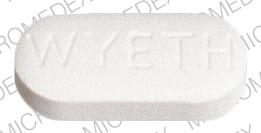Nafcillin and Alcohol/Food Interactions
There are 2 alcohol/food/lifestyle interactions with nafcillin.
Nafcillin Food/Lifestyle
Moderate Food Interaction
You may experience reduced absorption of nafcillin in the presence of food. The effectiveness of the antibiotic may be reduced. Nafcillin should be administered one hour before or two hours after meals. This will make it easier for your body to absorb the medication. Penicillin V and amoxicillin are not affected by food and may be given without regard to meals.
Switch to professional interaction data
Nafcillin High Blood Pressure (Hypertension)
Moderate Potential Hazard, High plausibility
nafcillin - sodium/potassium
Each gram of parenteral nafcillin sodium contains approximately 67 mg (2.9 mEq) of sodium and is buffered with 40 mg of sodium citrate. Each 250 mg capsule of nafcillin sodium contains approximately 17 mg (0.7 mEq) of sodium buffered with calcium carbonate. The sodium content should be considered in patients with conditions that may require sodium restriction, such as congestive heart failure, hypertension, and fluid retention. In addition, hypokalemia has been reported rarely during therapy with the penicillinase-resistant penicillins, which may be particularly important to bear in mind when treating patients with low potassium reserves or fluid and electrolyte imbalance. Clinical monitoring of electrolytes is recommended if these agents are used for prolonged periods.
Switch to professional interaction data
Nafcillin drug interactions
There are 332 drug interactions with nafcillin.
Nafcillin disease interactions
There are 4 disease interactions with nafcillin which include:
More about nafcillin
- nafcillin consumer information
- Check interactions
- Compare alternatives
- Pricing & coupons
- Reviews (1)
- Side effects
- Dosage information
- During pregnancy
- Drug class: penicillinase resistant penicillins
- Breastfeeding
- En español
Related treatment guides
Drug Interaction Classification
| Highly clinically significant. Avoid combinations; the risk of the interaction outweighs the benefit. | |
| Moderately clinically significant. Usually avoid combinations; use it only under special circumstances. | |
| Minimally clinically significant. Minimize risk; assess risk and consider an alternative drug, take steps to circumvent the interaction risk and/or institute a monitoring plan. | |
| No interaction information available. |
See also:
Further information
Always consult your healthcare provider to ensure the information displayed on this page applies to your personal circumstances.


